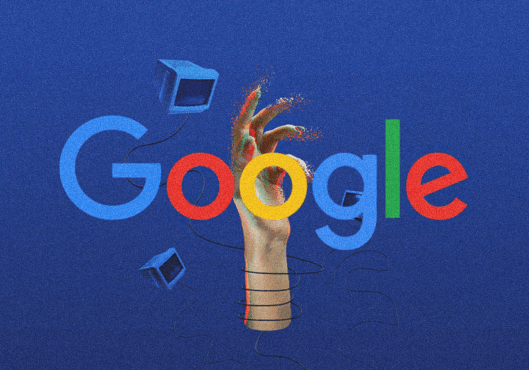
Let’s Get Real About AI in B2B Marketing
There’s not one B2B marketer out there who is removed from AI’s impact on the industry. AI is everywhere – in every software you’re using to email blast. In every piece of content, you’re sending across the wire. In the products your Ops team is whipping up.
This new, transformative frontier has revolutionized today’s businesses by enabling automated workflows, customized marketing strategies, enhanced data driven insights to enhance customer engagement. If you underestimated AI in 2023, buckle up for 2024. AI is going to seep across many facets of the job – from analyzing consumer behavior, creating content references, and pinpointing marketing trends.
GenAI’s ability to hyper personalize marketing strategies and use a data-driven approach to creating highly targeted marketing campaigns not only attracts leads but also ensures real-time conversions.
The capability of boosting business and reshaping how business connects with their customers has made AI a must have tool for every marketer. The future of B2B marketing is bright with AI, promising personalized strategies and data-driven decisions.
So, who’s using AI really? And what are they doing?
As funny as it would be to say, “everyone – duh,” there are some stellar examples of brands that have already integrated AI strategies into their campaign. But what does this look like in action? Here’s a closer look at how industry leaders are using AI to transform their marketing strategies:
HubSpot: Can you imagine a CRM that predicts your best leads? HubSpot utilizes AI for predictive lead scoring and offers recommended content that engages prospects with intelligent chatbots.
Salesforce: Think of Salesforce’s Einstein AI as your marketing sidekick. It helps with opportunity forecasting, lead scoring, and automated data entry while providing actionable insights from customer interactions.
Marketo: Many brands dream of hassle-free email campaigns. Marketo’s AI does the same thing- it analyzes customer behavior to segment audiences and sends customized emails.
Adobe: Adobe Sensei AI is like a visionary assistant on steroids. The Adobe Experience Cloud tool is one of the best examples of content management with automated image tagging and smart recommendations.
Netflix: Ever wondered how Netflix knows what you’ll love? Their AI analyzes your viewing habits to suggest content you’re sure to enjoy.
Amazon: Amazon’s AI is like having a personal shopper. It makes product recommendations and provides customer insights to drive cross-selling and upselling.
These brands are leveraging AI to gain actionable insights, automate repetitive tasks, and deliver highly personalized experiences. While AI has already become a core component into the most B2B business globally, but 66% of B2B marketers are experiencing FOMO and concerned about other companies might be a step ahead in their AI game.
Personalization, predictive analytics, and how to understand people
Gen-Z loves personalization. LOVES. Marketers often miss the mark or get fatigued with the sheer amount of content needed to provide personalized campaigns. Enter AI as a powerful force that crushes market insight and offers personalized strategies and tools that drive change. Giving an individualized touch to any marketing has become a milestone of effective marketing, and AI is the heart of that evolution. Earlier, traditional marketing was exceptionally reliable on broad demographic data, which led to generic advertising and strategies that failed to give results.
AI has changed the paradigm by offering personalization where content, messaging, and experiences are tailored to individual choice and behavior. Within no time a vast amount of data can be examined by AI, differentiating audiences quickly based on their nuanced criteria. This level of granularity has created a high demand for AI among B2B marketers to design campaigns that drive engagement.
Have you ever wondered how businesses today get ahead by truly understanding their customers? It is happening because of Ai- as AI enables businesses to understand customer preferences and provides deeper insights into customer behavior by analyzing data from sources like social media, website interactions, and CRM tool.
AI capability is unmatched and so advanced that it helps B2B marketers and businesses forecast trends and customer behavior. Historical data like- predictive analytics, potential needs, machine learning models, and conversion help marketers identify the most effective strategies to engage them.
AI is taking automation to new heights
What happens when your tasks get automated, and you enjoy your time doing other important things? Victory. AI powered tools help marketers to automate their most time-consuming tasks like data entry, email marketing, social media management, and content curation in an effortless way.
Chatbots are one smart example by AI, immensely used in e-commerce industry and others. These chatbots are so smart and highly trained that customers rarely identify that they are talking to bots. How cool is that? These super intelligent bots can handle inquiries, provide product information, and even guide prospects through the sales funnel – 24/7.
Future forward- How AI will help B2B marketing grow in the future
With a promising future, AI is all set to rock the B2B marketing industry in 2024 and beyond. The more it develops, the more marketers can use the tech to their advantage. Think detailed and deeper insights with accurate predictions and personalized targeting.
AI features like activated voice assistants and chatbots highlight an “always-on” 24/7, globally friendly approach to branding. Companies can offer their consumers seamless interactions, intuitive support, and real-time answers.
With increased efficiency and productivity, AI is also enhancing its role in Account-Based Marketing (ABM). ABM focuses on personalized marketing with high-value accounts, helps identify potential target audiences, analyzes customer behavior, and recommends strategies to help marketers grow their business exponentially.
Challenges of AI in B2B marketing
AI is the new game changer for B2B marketers, offering exceptional benefits. However, these benefits have significant challenges that must be addressed and overlooked. From training gaps to potential issues with brand authenticity, let’s talk about some real challenges below-
Training Gaps: B2B marketers lack adequate training in AI tools by their team, limiting their effectiveness and leading to missed opportunities.
Loss of Brand Voice: Content curated by AI can dilute brand authenticity, making messages feel impersonal.
Data Leaks: Handling sensitive information with AI can create some significant security risks.
Content Overlap: Content created by AI can lead to redundancy.
Ownership Issues: AI generated content can lead to legal and ethical challenges as there is uncertainty about content ownership.
Opaque Processes: The absence of transparency in AI decision-making can diminish trust and make it difficult to justify strategies.
Workflow Integration: Using AI into the existing processes can be challenging and met with resistance.
Ethics and Bias: AI generated ideas can be biased, requiring ongoing monitoring for fairness.
Relevance Gaps: AI may struggle with B2B-specific nuances, leading to less effective strategies.
Creativity Block: Using and relying too much on AI can hamper human creativity and innovation.
Despite all the advantages, human oversight is necessary to monitor and ensure accurate data to help businesses grow on a larger scale. Currently AI is underutilized by B2B marketers, but with the day to day change in market trend soon AI will be the future of every marketing industry.
Cut to the chase
AI impact has power has shown marketers that it is not just a momentary trend but the cornerstone of future marketing strategies. The diverse application from automating design processes to refining campaign activations and beyond, AI is full of new potentials. With AI, tomorrow has limitless possibilities, and the journey has just begun.


